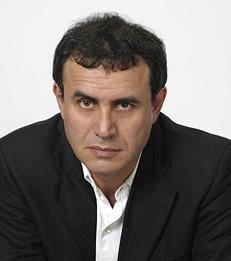Opinion
Clouds Over 2022
—

By Nouriel Roubini
Despite dips and disruptions from new variants of COVID-19, 2021 turned out to be a relatively positive year for economies and markets in most parts of the world. Growth rose above its potential after the severe recession of 2020, and financial markets recovered robustly. This was especially the case in the United States, where stock markets reached new highs, owing partly to the US Federal Reserve’s ultra-loose monetary policy (though central banks in other advanced economies pursued radically accommodative policies of their own).
But 2022 may be more difficult. The pandemic is not over. Omicron may not be as virulent as previous variants – particularly in highly vaccinated advanced economies – but it is much more contagious, which means that hospitalizations and deaths will remain high. The resulting uncertainty and risk aversion will suppress demand and exacerbate supply-chain bottlenecks.
Together with excess savings, pent-up demand, and loose monetary and fiscal policies, those bottlenecks fueled inflation in 2021. Many of the central bankers who insisted that the inflationary surge was transitory have now conceded that it will persist. With varying degrees of urgency, they are planning to phase out unconventional monetary policies such as quantitative easing, so that they can start to normalize interest rates.
Read the full Project Syndicate article.
___
Nouriel Roubini is a Professor Emeritus of Economics and International Business and the Robert Stansky Research Faculty Fellow.
But 2022 may be more difficult. The pandemic is not over. Omicron may not be as virulent as previous variants – particularly in highly vaccinated advanced economies – but it is much more contagious, which means that hospitalizations and deaths will remain high. The resulting uncertainty and risk aversion will suppress demand and exacerbate supply-chain bottlenecks.
Together with excess savings, pent-up demand, and loose monetary and fiscal policies, those bottlenecks fueled inflation in 2021. Many of the central bankers who insisted that the inflationary surge was transitory have now conceded that it will persist. With varying degrees of urgency, they are planning to phase out unconventional monetary policies such as quantitative easing, so that they can start to normalize interest rates.
Read the full Project Syndicate article.
___
Nouriel Roubini is a Professor Emeritus of Economics and International Business and the Robert Stansky Research Faculty Fellow.
